

|
Jacques Gaffarel |
Configuration Des Estoilles En Characteres Celestes in Curiositez Inouyes sur la Sculpture Talismanique des Persans: Horoscope des Patriarches, et Lecture des Estoilles, Paris 1629 |
Jacques Gaffarel
Configuration Des Estoilles En Characteres Celestes, in Curiositez Inouyes sur la Sculpture Talismanique des Persans: Horoscope des Patriarches, et Lecture des Estoilles, Paris 1629


Titolo e frontespizio dell'edizione pubblicata in latino ad Amburgo nel 1676 e nel 1678
Description:
Jacques
Gaffarel (Latin: Jacobus Gaffarellus) (1601–1681).
The present map is an important work of Jewish
astrology, intended to represent the Heavens using Hebrew Characters, first
appearing in expanded 1650 edition of Gaffarel's work. It was intended to illustrate the section on astrological
practices in the ancient Near East, particularly among the Israelites and
Persians.
Jewish
astrology developed independently from the mythology and star-gazing of the
ancient Greek and Roman civilizations. Gaffarel included in his work a depiction
of "the Celestial Constellations expressed by Hebrew characters", and
asserted that the letters of the Hebrew alphabet could be interpreted from the
constellations and that the heavens could be read as if a book. For the
Hebrew letters, Gaffarel draws from the designs of "Rabbi Chomer."
Among Gaffarel's other sources was Kapol ben Samuel's Amuq amuqim,
published in Cracow in 1498.
Jacques
Gaffarel (1601-81), was a theologian and orientalist, whose work grew out of the
Renaissance Platonist and Christian cabbalist traditions. He served as Librarian
to Cardinal Richilieu and was considered a profound astrologer. Curiositez
Inouyes was very well received, and went through several editions in
French, as well as being translated into English (Unheard-of Curiosities:
Concerning the talismanical sculpture of the Persians; the horoscope of the
patriarkes; and the reading of the stars) and Latin.
Gaffarel's
work enjoyed phenomenal success. René Descartes read this work with interest
and the French physician and mathematician Pierre Gassendi (1592–1655)
defended it. Unheard-of Curiosities was one of 1,500 books in the Library of Sir
Thomas Browne and one of the varied sources of his encyclopaedia entitled Pseudodoxia
Epidemica. Browne alludes to Gaffarel's astrology in The Garden of Cyrus thus:
Could
we satisfy our selves in the position of the lights above, or discover the
wisdom of that order so invariably maintained in the fixed stars of heaven......we
might abate.....the strange Cryptography of Gaffarell in his Starrie Booke of
Heaven.
Gaffarel contributed
to the debate between Marin Mersenne and Robert Fludd. Whiled the Theological Faculty at
the Sorbonne rejected Gaffarel's work and ridiculed him, Gaffarel gained the
protection of the powerful Cardinal Richelieu, who made him his librarian and
sent him to Italy, Greece and Asia in search of rare books (reportedly including
manuscripts by Pico della Mirandola).

che
attualmente mette in vendita una copia dell’edizione del 1650.
La tesi di Gaffarel
secondo la quale le stelle e le costellazioni ebraiche sono identificate da
lettere del loro alfabeto, tesi graficamente rappresentata nelle due tavole che
presentiamo, è anche sviluppata a partire da pag. 576 delle Curiositez
nel Chap. XIII:
Que les Estoilles, selon les Hebreux, sont rengees au Ciel en forme de lettres,&
qu’on y peut lire tout ce qu’il arrive de plus important dans l’univers:
Al seguente indirizzo è possibile leggere l’intera opera
nell'edizione del 1629:
http://reader.digitale-sammlungen.de/en/fs1/object/display/bsb10132614_00001.html
per cortesia di
E al seguente
per
cortesia di

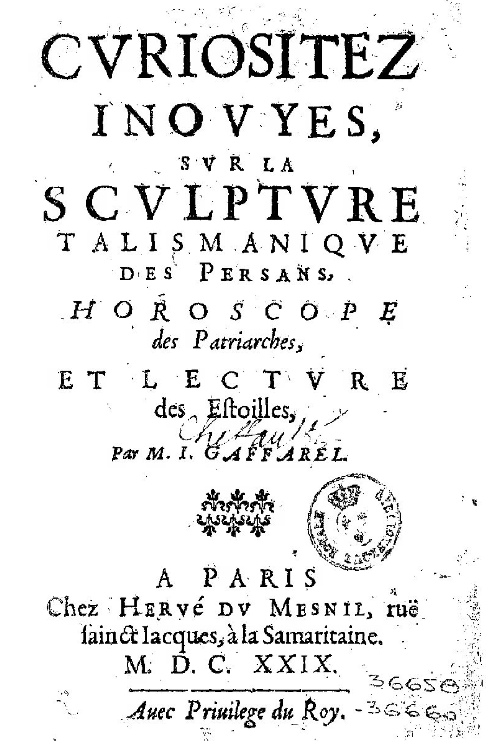
https://gallica.bnf.fr/ark:/12148/bpt6k117807g/f137.planchecontact
Configuration Des Estoilles En Characteres Celestes
Tavola
Edizione del 1650

Edizione di Amburgo del 1676
Hemisphaerium Boreale Caracterum Coelestium
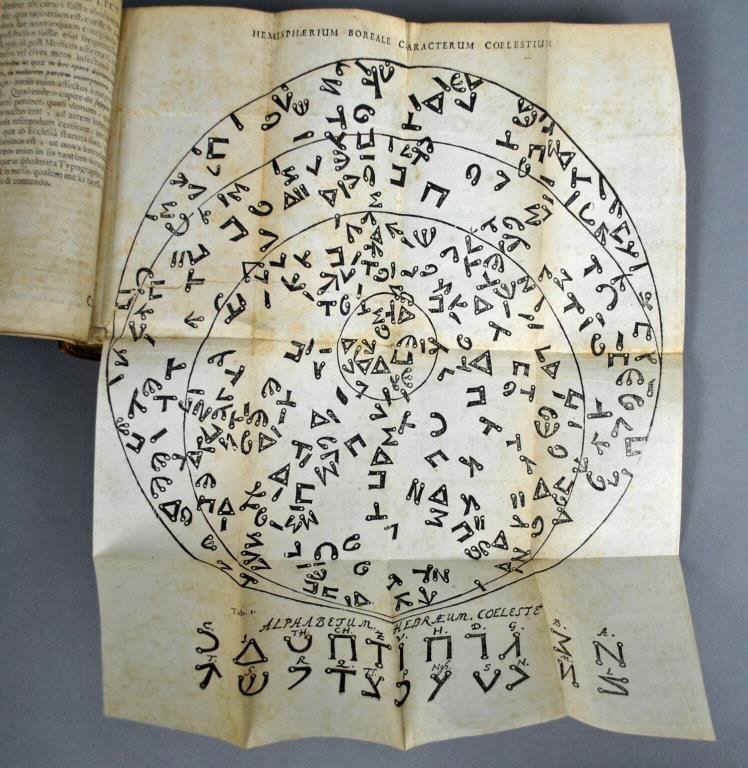
Edizione di Amburgo del 1678
Hemisphaerium Boreale Caracterum Coelestium
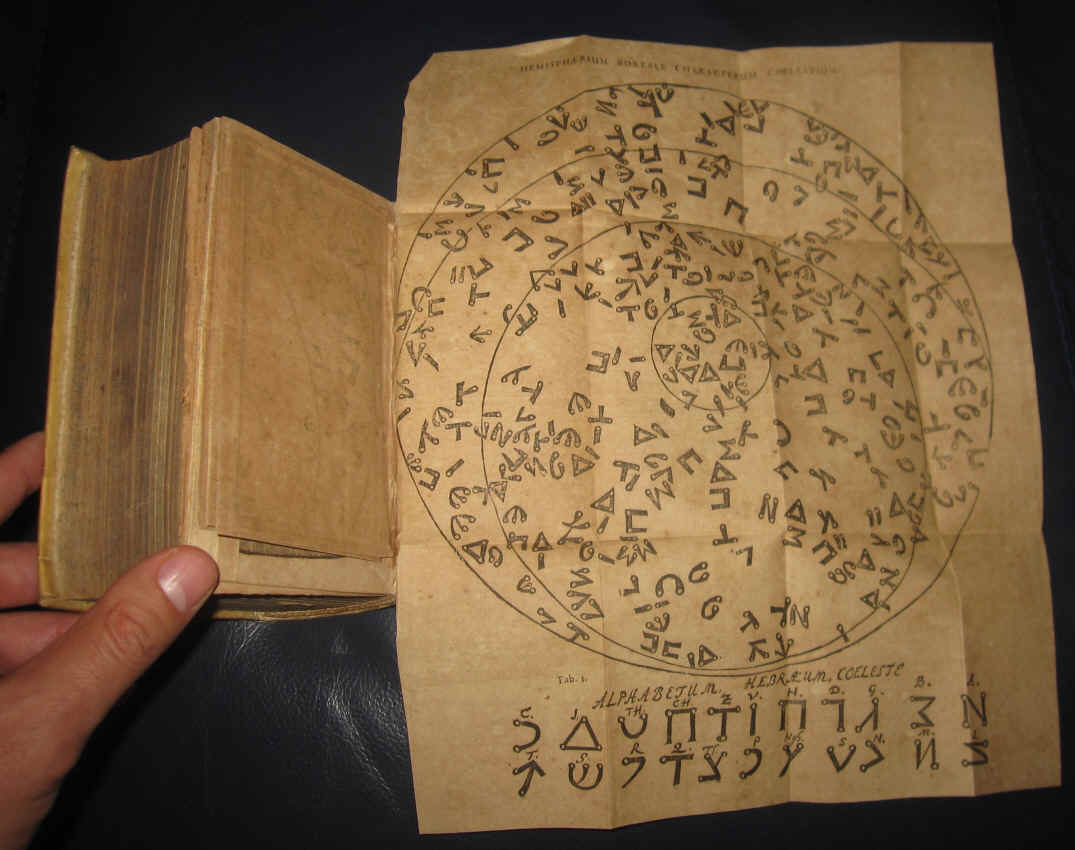
http://www.collaborations.com/Ebay/curiositates.htm
BNF Gallica al seguente indirizzo
presenta due tavole spurie, 28cm per 26, dei planisferi celesti

https://catalogue.bnf.fr/ark:/12148/cb406738226
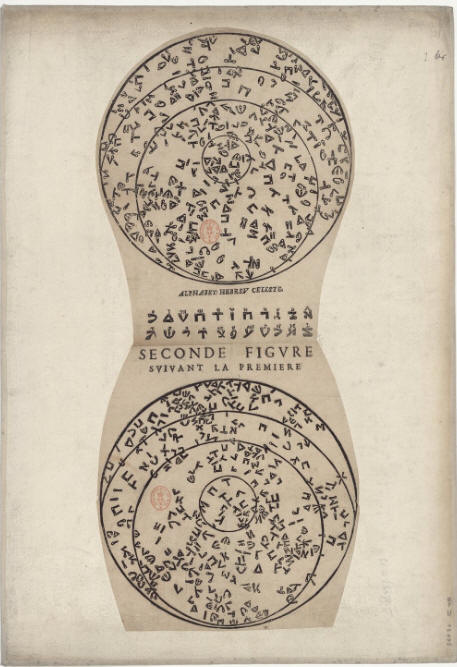
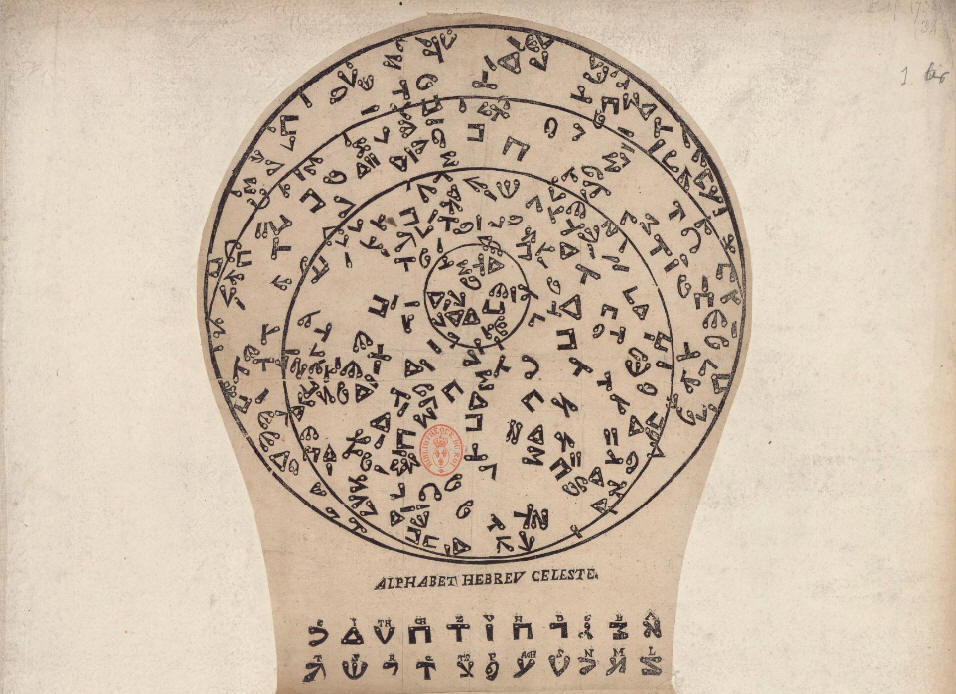
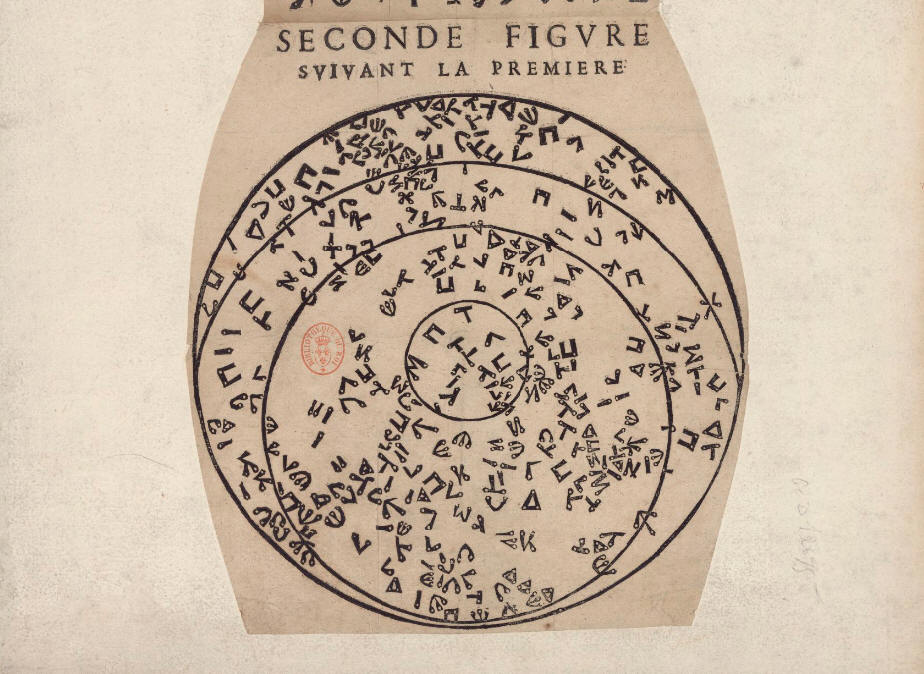
https://gallica.bnf.fr/ark:/12148/btv1b84905023/f1.item.zoom
di FELICE STOPPA
LUGLIO 2014
aggiornato SETTEMBRE 2019